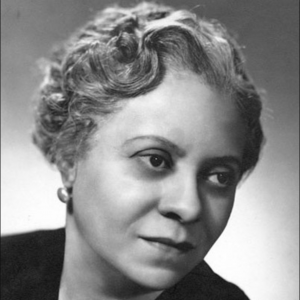On June 15th, 1933, Florence Price made history: the Chicago Symphony premiered her Symphony in E minor, making her the first African-American woman composer to have a work performed by a major orchestra.

This work, originally subtitled “Negro Symphony,” draws on many of the stylistic traits of African-American folk music without ever explicitly quoting folk melodies; instead of writing symphonic music around a 12-bar blues or a spiritual tune, as did many of her contemporaries, Price instead incorporates some of the harmonic and melodic elements of blues and spirituals into her own unique voice. The resulting composition is strikingly original.
Despite the high quality of her music, Price had difficulty attaining performances of her work. In a 1943 letter to Sergei Koussevitzky, she explains the manifold struggles she faces as both a female composer and a composer of color:
“Unfortunately the work of a woman composer is preconceived by many to be light, frothy, lacking in depth, logic, and virility. Add to that the incident of race – I have Colored blood in my veins – and you will understand some of the difficulties that confront one in such a position”
In the remainder of the letter, Price asks Koussevitzky to consider one of her compositions, insisting that he make “no concession” on the basis of race or sex, but rather evaluate the score on its musical merit alone. Despite receiving many such letters from Price, Koussevitzky never programmed a single one of her works.
The underrepresentation and erasure of Florence Price continues to the present day: after searching several databases, I found that there is only one recording of the Symphony in E minor that is readily available to the public. Scholarly research on Price’s life is also relatively sparse, with the writings of late musicologist Rae Linda Brown existing as some of the only works that honor Price’s life and pay homage to her music. The conspicuous silence surrounding Price in scholarly and musical discourses clearly illustrates the racist and sexist systems that ceaselessly oppress female composers of color. Performing, researching, and recording the music of these underrepresented composers is essential if we ever hope to dismantle these systems and construct a new musical landscape that truly offers equal opportunities for all people.
Sources
Fabre, Geneviève, and Michel Feith. Temples for tomorrow: looking back at the Harlem Renaissance. Indiana University Press, 2001.
Price, Florence B. “Recorded Music of the African Diaspora, Vol. 3.” Albany Records, 2011.
